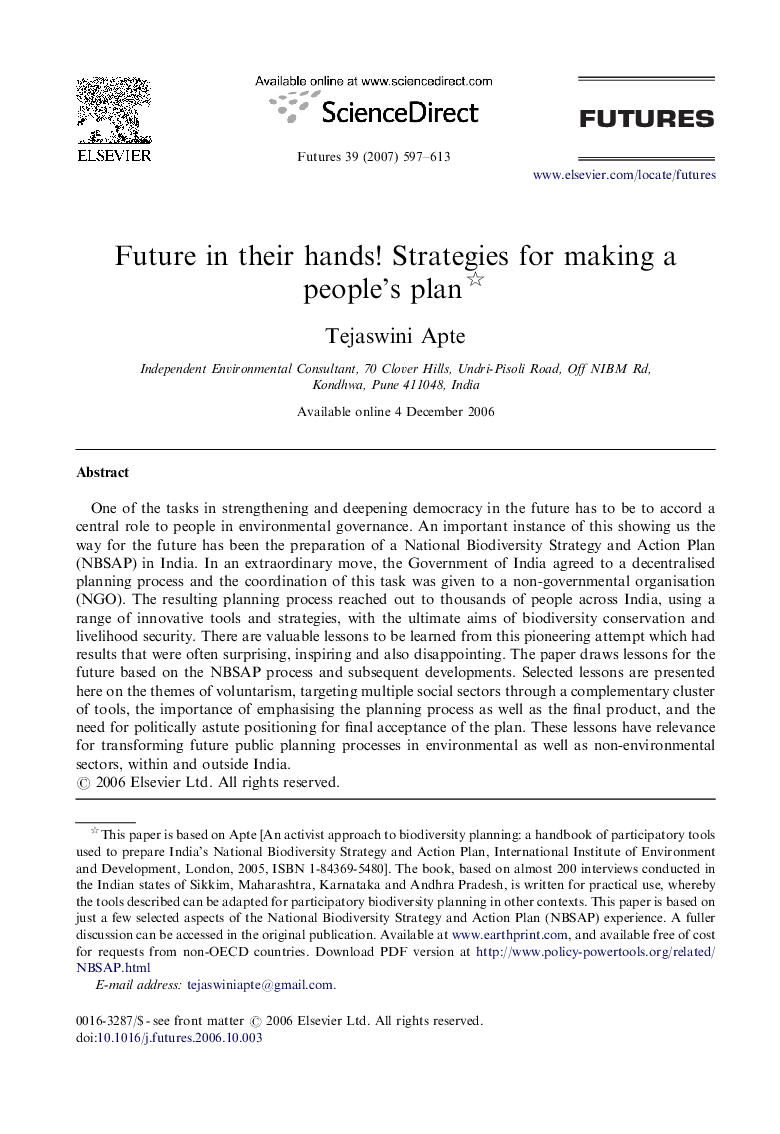| Article ID | Journal | Published Year | Pages | File Type |
|---|---|---|---|---|
| 1016225 | Futures | 2007 | 17 Pages |
Abstract
One of the tasks in strengthening and deepening democracy in the future has to be to accord a central role to people in environmental governance. An important instance of this showing us the way for the future has been the preparation of a National Biodiversity Strategy and Action Plan (NBSAP) in India. In an extraordinary move, the Government of India agreed to a decentralised planning process and the coordination of this task was given to a non-governmental organisation (NGO). The resulting planning process reached out to thousands of people across India, using a range of innovative tools and strategies, with the ultimate aims of biodiversity conservation and livelihood security. There are valuable lessons to be learned from this pioneering attempt which had results that were often surprising, inspiring and also disappointing. The paper draws lessons for the future based on the NBSAP process and subsequent developments. Selected lessons are presented here on the themes of voluntarism, targeting multiple social sectors through a complementary cluster of tools, the importance of emphasising the planning process as well as the final product, and the need for politically astute positioning for final acceptance of the plan. These lessons have relevance for transforming future public planning processes in environmental as well as non-environmental sectors, within and outside India.
Related Topics
Social Sciences and Humanities
Business, Management and Accounting
Business and International Management
Authors
Tejaswini Apte,
